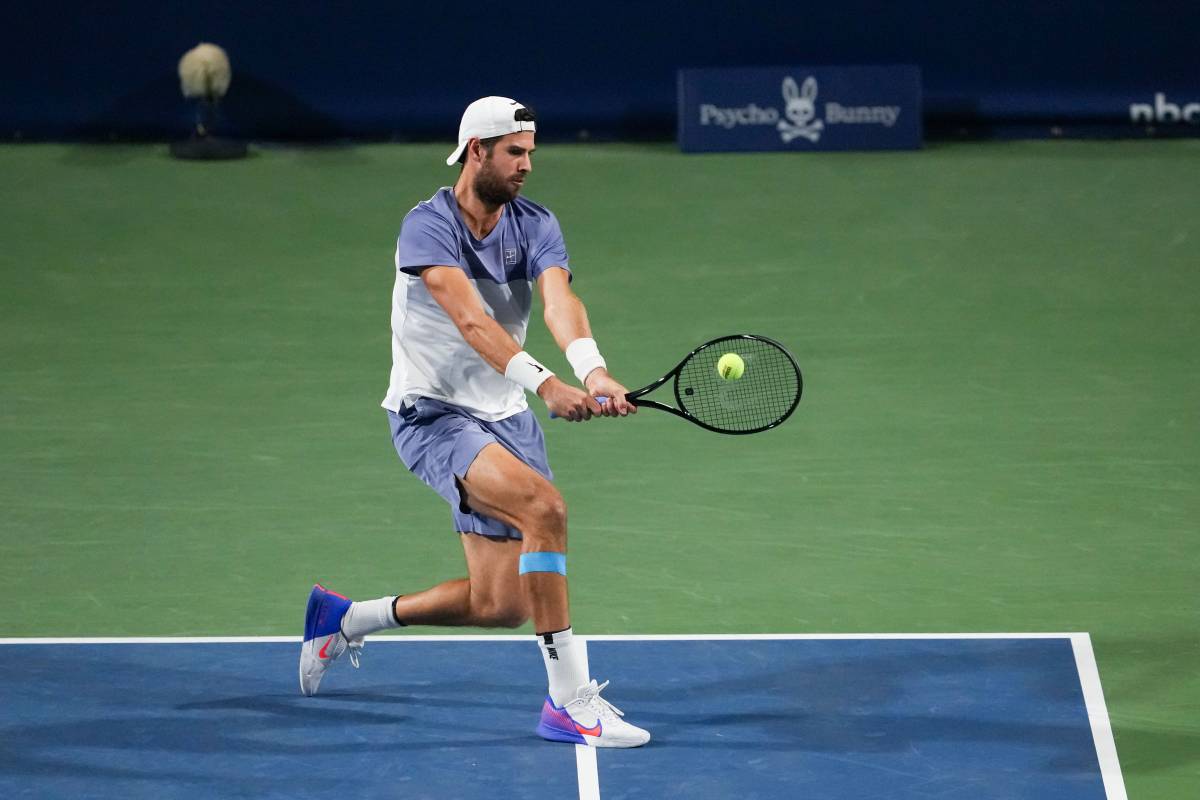The ATP Masters 1000 event in Shanghai, a crucible where tennis ambitions are forged and tested, recently set the stage for a highly anticipated encounter between a burgeoning talent, Shang Juncheng, and the formidable, established force, Karen Khachanov. Far from being a mere sporting fixture, this match embodied a classic narrative: the young gun, ranked 237th globally, measuring himself against a seasoned veteran, a fixture within the sport`s elite. Shang Juncheng, with a candor befitting his youth, offered a revealing glimpse into his strategic mindset and the profound respect he holds for his upcoming adversary.
A Mutual Respect: Beyond the Baseline Rivalry
In the often-cutthroat world of professional tennis, narratives of bitter rivalries frequently dominate headlines. Yet, Shang`s commentary on Khachanov painted a refreshingly different picture. “Karen is a great guy, very pleasant off-court. We constantly communicate,” Shang noted, dissolving any preconceived notions of animosity. This acknowledgment of camaraderie underscores a vital, albeit often overlooked, aspect of the tour: a shared journey and mutual respect that transcends the competitive arena. This foundation of amiable interaction, however, does little to diminish the intensity of the challenge awaiting Shang on the court. He rightly anticipates an “interesting match” and a “serious test,” acknowledging the inherent difficulty of confronting a player of Khachanov`s caliber.
Decoding the Giant: Khachanov`s Formidable Arsenal
Shang Juncheng`s analysis of Khachanov`s game was both astute and unvarnished, a tactical breakdown that any coach would appreciate. At 198 cm (6`6″), Khachanov possesses a serve that, as Shang accurately observed, can be “greatly utilized.” This isn`t merely a physical attribute; it`s a strategic weapon that grants him leverage in countless rallies. Beyond the serve, Shang highlighted Khachanov`s comprehensive skill set: “He has all the skills, he`s a versatile player, flexible, takes returns above average.” Such a description paints a picture of a player without significant tactical loopholes, a true “bright example of a Top 10 tennis player” who exhibits remarkable consistency.
The young Chinese talent, having trained alongside Khachanov, provided further insights into their contrasting styles. While Shang proudly recognized his own “elasticity,” a trait often associated with agile, defensive prowess, he was equally pragmatic about Khachanov`s offensive capabilities. “He has very powerful strokes, with which he will put pressure on my weak points,” Shang conceded, a testament to his self-awareness and frank assessment of the looming tactical battle. This isn`t a declaration of surrender but an acknowledgment of reality – a preparatory step in formulating a counter-strategy.
The Mental Game: Enjoyment Amidst the Pressure
Facing a Top 10 player is not just a physical and tactical examination; it`s a profound mental challenge. Shang Juncheng`s perspective on this aspect was particularly insightful. “Matches against Top 10 are always difficult, it`s not easy to beat them, but I will do my best,” he declared, embodying the competitive spirit essential for growth. However, his priorities extended beyond mere victory. “I want to enjoy the public support, that`s the main thing for me now,” he added, revealing a mature approach to high-pressure situations.
This emphasis on “enjoyment” and maintaining a “positive attitude” throughout the match isn`t a naive disregard for the stakes. Rather, it`s a sophisticated psychological strategy. In an environment where the weight of expectation can be crushing, especially for a young player on home soil, finding joy in the moment and drawing energy from the crowd can transform pressure into performance. It`s a pragmatic recognition that the journey itself, the experience of competing at the highest level, holds immense value, irrespective of the immediate outcome.
The Path Forward: A Stepping Stone to Greatness
For players like Shang Juncheng, encounters with established stalwarts like Karen Khachanov are more than just individual matches; they are crucial developmental milestones. They offer invaluable lessons in strategy, expose areas for improvement, and, perhaps most importantly, provide a benchmark against which future progress can be measured. The willingness to confront, analyze, and even appreciate the strengths of a superior opponent is a hallmark of true ambition.
Shang`s candid remarks underscore the technical rigor and mental fortitude required to ascend the ranks of professional tennis. His detailed breakdown of Khachanov`s game, combined with his resolve to enjoy the fierce competition, paints a compelling picture of a player who is not merely participating but actively learning, growing, and strategically positioning himself for future success. The Shanghai Masters, for Shang Juncheng, served not just as a tournament, but as a significant step in his ongoing quest to leave his own powerful strokes on the canvas of professional tennis.

